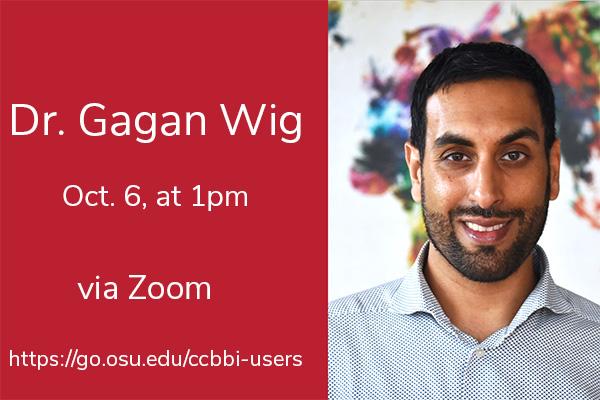
Dr. Gagan Wig is an Associate Professor in the Center for Vital Longevity and School of Behavioral and Brain Sciences at the University of Texas at Dallas, and in the Department of Psychiatry at The University of Texas Southwestern Medical Center.
Title: Brain Network Aging Across Health, Space, and Species.
Abstract: Is aging-related cognitive decline a consequence of brain network failure? I will highlight efforts from my lab that have helped to develop and incorporate tools from network science to further our understanding of how the brain’s large-scale functional network organization changes across the lifespan. This work is revealing that functional brain network organization relates to an individual’s cognitive ability during healthy adulthood, and that brain network changes are uniquely prognostic of cognitive impairment (independent of structural atrophy and neuropathology). Our more recent observations have demonstrated that an individual’s environmental exposures exert an impact on their trajectory of brain network decline, which indicates that brain network organization can be used to measure disparities in brain health. Finally, I will touch on our initial steps towards developing non-human animal models of aging-related brain network changes, which we are pursuing in order to bridge the human aging work with efforts in other species. Collectively, these observations are offering a new perspective towards understanding healthy and pathological aging, spotlight a path for discovering vulnerabilities of brain aging that are linked to an individual’s past and present environmental exposures, and are catalyzing the development of a novel class of precision health measures which are based on patterns of large-scale brain network organization.
Bio: Dr. Wig earned a Bachelor of Science from the University of British Columbia and a Ph.D. in Cognitive Neuroscience from Dartmouth College, followed by post-doctoral fellowships at Harvard University and Washington University in St. Louis with the Human Connectome Project. Dr. Wig is currently an Associate Professor in the Center for Vital Longevity and School of Behavioral and Brain Sciences at the University of Texas at Dallas, and in the Department of Psychiatry at The University of Texas Southwestern Medical Center.
Dr. Wig and his team use brain imaging to study healthy and pathological aging across the adult lifespan. This work is centered around measuring patterns of brain connectivity to understand how large-scale brain networks change as individuals age and determining how these changes impact cognitive function and dementia risk. Through this work Dr. Wig is isolating the factors that promote resilience to age-related cognitive decline and examining how an individual’s social and economic conditions can expose vulnerabilities in their brain health as they grow older. Dr. Wig’s research is presently supported by grants from the National Institute of Aging and the James S. McDonnell Foundation.
